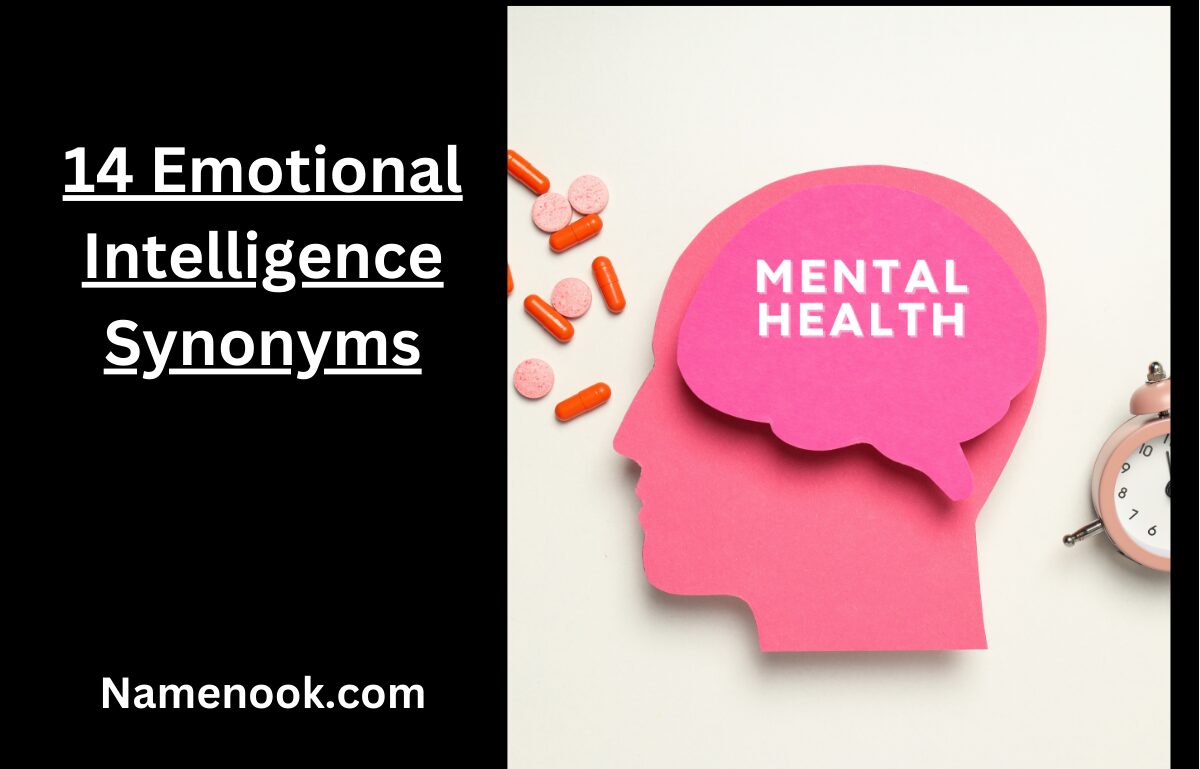1. Emotional Quotient (EQ)
One of the most common alternatives to the term “emotional intelligence” is Emotional Quotient, or EQ. It refers to a person’s ability to understand and manage their own emotions, recognize how others feel, and use that awareness to navigate social situations and relationships.Example:
Imagine you’re leading a project team, and you notice Steve, one of your team members, looks clearly frustrated. As someone with high EQ, you pick up on his mood and decide to act before things get worse.
You take him aside and gently ask, “Hey Steve, you seem a bit upset—anything I can do to help?” That simple act not only diffuses potential tension but also shows emotional awareness and leadership.
2. Social Intelligence
Social intelligence is closely related to emotional intelligence and is all about reading social cues, understanding how people interact, and adjusting your behavior to fit different social situations. It’s especially important in team settings and leadership roles.
Example:
At a company networking event, you notice your colleague Sarah standing alone, looking a bit uneasy. You approach her with a warm, non-intrusive greeting and start a friendly conversation. By doing this, you make her feel more comfortable and included.
3. Empathy
Empathy lies at the heart of emotional intelligence. It’s the ability to truly understand and share someone else’s feelings, helping to form deeper, more meaningful connections.
Example:
During a chat with a friend going through a tough time, you don’t rush to give advice. Instead, you listen and say, “I can’t imagine exactly what you’re dealing with, but I’m here for you.” That moment of emotional connection can mean a lot more than quick fixes.
4. Cognitive Empathy
While empathy often involves feeling what another person feels, cognitive empathy is more about mentally understanding what they’re experiencing. It’s particularly helpful when trying to resolve disagreements.
Example:
If a coworker seems upset after a meeting, cognitive empathy allows you to consider that they may have felt ignored or dismissed. Recognizing that perspective helps you approach them thoughtfully and resolve the issue without letting emotions take over the conversation.
5. Relational Intelligence
Relational intelligence is about building and maintaining strong, positive relationships. It’s being tuned in to people’s emotional needs and responding in ways that build trust and teamwork.
Example:
As a team leader, you realize that John thrives on clear structure, while Maria prefers working more independently. You adjust your leadership style for each of them, showing flexibility and respect for their individual strengths—which helps everyone perform better.
6. Empathic Intelligence
Empathic intelligence combines emotional and cognitive empathy. It means you not only understand how someone feels but also genuinely connect with those emotions.
Example:
After a client sends a frustrated email, you don’t just reply with a solution. Instead, you acknowledge their concerns and respond with empathy, showing them that you understand their frustration and are committed to working through it with care.
7. Emotional Competence
Emotional competence refers to the skill of managing your own emotions while also being attuned to how others feel. It includes emotional regulation, self-awareness, and social sensitivity.
Example:
During a heated meeting, you sense tension rising. Rather than reacting emotionally, you stay calm and help guide the group back to a productive discussion. Your ability to keep your emotions in check while being mindful of others makes a big difference in keeping things on track.8. Social Acumen
Social acumen is the ability to pick up on social cues, understand group dynamics, and respond in a way that fits the situation. It’s especially important for leaders and people who regularly interact with clients or customers.
Example:
At a business lunch, you notice that a potential client seems a bit uncomfortable with the current conversation. Tuning into that discomfort, you smoothly steer the discussion toward a more neutral topic, helping them feel at ease and keeping the meeting productive.
9. Self-Awareness
Self-awareness is a key part of emotional intelligence. It means being able to recognize your own emotions, understand how they influence your behavior, and see how others might perceive you. It also supports personal growth and emotional control.
Example:
During a team meeting, you catch yourself feeling defensive when your ideas are questioned. Rather than reacting emotionally, your self-awareness kicks in—you pause, reflect, and respond calmly, keeping the conversation professional and focused.
10. Emotional Perception
Emotional perception is the ability to accurately recognize and interpret emotions—both your own and those of others. It’s an essential skill for improving communication and relationships.
Example:
While helping a customer, you notice irritation in their voice, even though their words are polite. You pick up on their frustration and respond with empathy, addressing their concerns with care and easing the tension.
11. Relationship IQ
Relationship IQ is all about understanding how relationships work and knowing how to manage them well. It’s about navigating complex social dynamics, whether in the workplace or in personal life.
Example:
As a project manager, you see two coworkers clashing repeatedly. Using your relationship IQ, you step in and help them talk things out. By encouraging open communication, you help clear the air and build a more cooperative atmosphere.
12. Social Cognition
Social cognition refers to the mental skills we use to make sense of social situations—understanding what others might be thinking or feeling and why they behave a certain way.
Example:
In a group discussion, you notice one team member pulling back and not saying much. You sense they might be feeling left out, so you invite them to share their thoughts. This helps them feel included and appreciated.
13. Empathic Communication
Empathic communication is about expressing understanding and compassion through your words, tone, and body language. It’s a powerful way to connect with others and build trust.
Example:
When a colleague confides in you about a personal issue, you respond gently: “That sounds really tough. Please let me know if there’s anything I can do to help.” Your tone and body language show genuine concern and support.
14. Emotional Awareness
Emotional awareness means being in tune with your emotions and understanding how they affect your thoughts, decisions, and actions. It’s closely related to self-regulation and emotional intelligence.
Example:
You’re in a stressful situation and feel anxiety creeping in. Recognizing it early, you take a moment to breathe and collect yourself. This helps you respond calmly and make better decisions under pressure.
Summary of Emotional Intelligence Synonyms
| Term | Description | Example |
|---|---|---|
| Emotional Quotient (EQ) | Recognizing and managing your own and others’ emotions | Supporting a frustrated team member with empathy |
| Social Intelligence | Navigating and understanding social situations | Making a colleague feel welcome at a networking event |
| Empathy | Sharing and understanding others’ feelings | Comforting a friend without offering unsolicited advice |
| Cognitive Empathy | Intellectually understanding someone’s emotions | Resolving conflict by recognizing underlying concerns |
| Relational Intelligence | Building and maintaining strong relationships | Tailoring your leadership style to suit different team members |
| Empathic Intelligence | Deeply resonating with others’ emotional experiences | Responding thoughtfully to an upset client |
| Emotional Competence | Effectively managing your own emotions and responding to others | Staying calm during a heated discussion and guiding it productively |
| Social Acumen | Reading social cues and adapting accordingly | Changing a tense conversation topic during a client meeting |
| Self-Awareness | Understanding your own emotions and behavior | Recognizing defensiveness in a meeting and adjusting your reaction |
| Emotional Perception | Identifying emotions in yourself and others | Picking up on a customer’s frustration through their tone |
| Relationship IQ | Managing and improving personal and professional relationships | Mediating conflict between coworkers to improve teamwork |
| Social Cognition | Interpreting and understanding social behavior | Noticing someone is disengaged in a group and encouraging their participation |
| Empathic Communication | Showing empathy through both words and non-verbal cues | Using kind language and gestures to comfort a colleague facing a challenge |
| Emotional Awareness | Being mindful of your emotional state and its impact | Recognizing your anxiety during stress and grounding yourself before responding |
Conclusion: The Value of Emotional Intelligence Synonyms
All these different terms—whether you call it EQ, empathy, or relational intelligence—reflect the same core idea: understanding emotions and using that understanding to improve communication, relationships, and decision-making.
By developing these skills, you don’t just become a better communicator or leader—you build stronger connections, handle conflict more gracefully, and grow both personally and professionally. Start practicing today, and let your emotional intelligence guide you toward more meaningful interactions and greater success.

